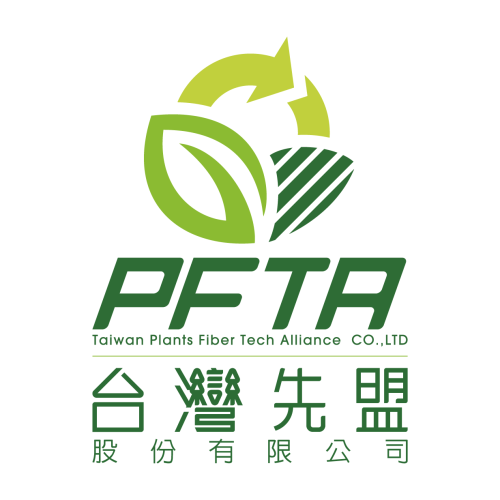PFTA has been researching and developing natural fiber recycling technology and recycled decomposable materials for years. We recycle wasted agricultural materials to make natural, non-toxic and petrochemical-free plant fiber polymerization (PFP). Therefore, PFP is a natural plant fiber composite material. In this way, PFTA could comply with the rules and policies toward limits to single-use petrochemical plastics, pseudo decomposed material and its formula in each country to meet the goal set by the United Nations to pledge zero tolerance of plastic pollution by 2025.
In addition to the recycled fiber composite materials, we also accelerate R&D progress to develop and mass-produce the utility model of marine decomposable materials. Through the distribution and trading cooperation, one of our products, PFP sugar cane fiber straw, has been promoted in Canada, Hong Kong, Macau, China, Japan, Thailand, Indonesia, Cambodia, Vietnam, South Africa, the United States, Europe, Australia, etc.
1. Sustained Cycles Make Earth Sustainable
2. Agricultural recycled fiber composite materials
After Taiwan Sugar Co. extracts sugar and juice from the canes, we recycle the bagasse to make sugarcane fiber straws. Unlike traditional petrochemical polypropylene (PP) plastic straws, our technology specializes in transforming natural fibers. This method reduces air pollution due to burning the wasted agricultural fibers and natural fibers in the past. We allocate 5% of the profits to establish a foundation to help disadvantaged farmers so as to provide better agricultural planting and management techniques, to assist farmers in nature-friendly farming methods, to reduce burdens on earth, and to realize real cyclic symbiosis.
3. Product introduction:
We use diverse and exclusive conversion processes and technologies to convert waste agricultural fibers and natural fibers into varied materials, which can be applied to numerous daily necessities. Through the strict formula, we are able to meet the international standards of truly complete compost.
3-1. Ease PP pollution & solve air pollution and carbon emission
Agricultural recycled fiber composite materials not only ease the petrochemical plastic pollution but also solve the air pollution, reduce PM2.5 levels and cut down carbon emissions from burning agricultural wastes.
PFP sugar cane fiber straws can be completely decomposed as composts; moreover, the straws will increase the organic matter content within the compost. This method allows the recycled waste or products to return to nature in a non-toxic and eco-friendly way.
3-2. Truly decomposed compost formula
Due to cost and manufacturing technological limitations in the past, many decomposing materials were added to some petrochemical plastics. PFP insisted on using formula materials that can be completely composted. Integrating with recycled natural fibers, our products are able to meet stringent international standards and regulations.
3-3. Agricultural waste fiber conversion technology to make the use of agricultural waste more diversified and effective
Agricultural waste fibers have been troublesome to many countries, especially those dependent on the agriculture industry. The huge amounts of crops leave excessive agricultural waste fibers and lead to an environmental burden. Although fibers are natural substances, they can be decomposed in the general environment, yet in at least 90 to 180 days. It takes so long that no one can deal with agricultural waste fiber in large quantities in the past. We develop efficient yet low-energy processing methods to carry out the cumbersome waste fiber processing method with low carbon emissions and low water consumption. Eventually, we are able to turn waste fibers into valuable materials.
